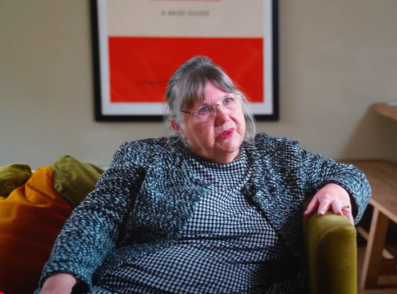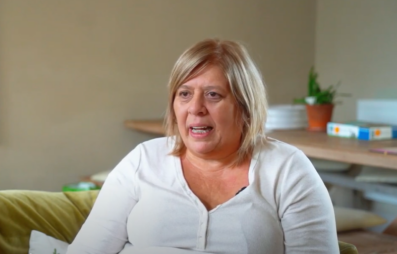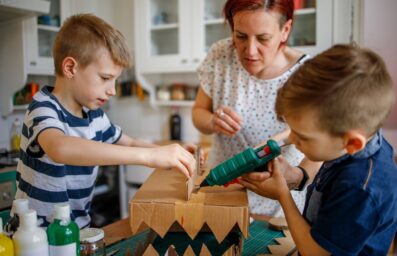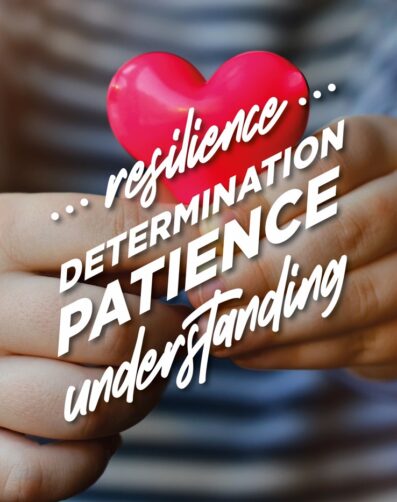15 years ago, Delia and Franz made their initial enquiry into fostering, as Delia begins to explain…
“We have always wanted to make a difference in children’s lives, but back then I don’t believe that we fully understood what fostering entailed. After that initial enquiry, we realised the time was not quite right for us due to my husband working away serving in the Army. Our birth children were also very young, so we decided to hold off and revisit it at a more suitable time in our lives.”
Delia continues; “Eight years later, in 2014, we were in a better position to fully consider fostering, and that’s when we began. I decided to have a career change and sold my Barber shop in order to foster vulnerable children full time. I always got on well with the children who came into the shop, and it was there really that I realised I could do this as a career.”
Delia and Franz have two male birth children, and two foster children. Their birth sons are both older now and have families of their own. They also enjoy helping and supporting the couple out with babysitting whenever needed.
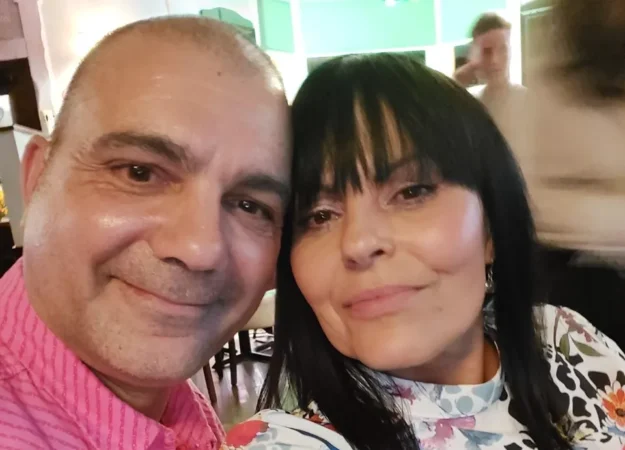
Delia explains; “Fostering has made such a positive impact on our lives, first of all, our family is now bigger! We are still in contact with some of the foster children we have taken care of too. Fostering has allowed me to see what some children have to go through before they get to a better life.
“I have not had the best upbringing myself, so I have always been able to sympathise and understand these children, and ultimately, I want to give them a better life.”
The couple have taken on different respite placements whilst they have been fostering. Respite foster care is a fostering placement that is for a limited duration of time, allowing benefits for both the foster carer and the child, as it provides them some ‘respite’ or a short break from usual duties of care. Delia explains; “Two of the respite children we have taken care of are from Africa, which is a totally different ethnic background to us. We really enjoyed taking care of the children and learning more about the children’s traditions, specifically how they have their hair!”
However, fostering can sometimes be challenging as Franz comments; “Delia and myself have taken care of 22 children in total over the last few years, many of them from different backgrounds and countries, including Africa, Afghanistan, South America, Sri Lanka and others. We have experience caring for children from various countries and religions different to our own and that can sometimes be challenging as there is a lot to adapt and consider.
“However, when children from different backgrounds come to us, it’s important for us to do our research into their religion, or country traditions, and do special things for them such as cook their favourite foods, as well as encourage them to learn English. Sometimes you can’t prepare for every eventuality, you have to be creative and that is one of our favourite things.”
Delia flew to the UK from Germany 20 years ago, and when she arrived, she could not speak English, as she explains; “Coming to this country twenty years ago not knowing a word of English enables me to relate to these children and help them learn, just like how I did. The children we have currently in our care are from South America, and it’s really interesting to learn from them as well as teach them!”
Franz reflected on his most memorable moments in the couple’s seven years of fostering, adding: “The most standout moment for me was a time when we had three traveller children in our care. We cared for them for four weeks and they had settled in well. One Friday, we sat them down once they had come home from school and explained that it was time for them to go back home.”
Franz continues; “They all jumped in the air and were obviously very excited initially, and then the eldest one who was 11, suddenly became very sad and turned her back to us. She was crying and we asked her what the matter was, and she explained that although she was happy to be going home to see her family, she was going to miss us very much, which was heart-breaking really to hear, but makes everything so worthwhile!”
Delia adds; “At one point, we had four children in our care, including two from Sri Lanka and two from Afghanistan. We had so many different people from different backgrounds sitting around our dinner table and it was just a pleasure to be a part of. We loved to learn about their lifestyle, how they eat, what they eat, what daily things they are used to, it’s all such an incredible thing to learn about. After ten months, we had built up a great relationship with the birth mother of the Sri Lankan boys. I was invited to her house to give her advice on how to look after them, which really shows how impactful fostering can be.”
The couple believe that the most rewarding part of fostering for them is seeing the children in a better place: “Watching the children go back to their birth families or seeing them have a better life with someone else really is the most rewarding part for us. We enjoy staying in contact with some of the children and seeing them now living their best lives, it’s incredible.”
Delia reflected on her experience with FCA and gave some advice to anyone considering fostering; “When we switched over to FCA it was an easy process and we felt so supported. FCA are first class in comparison to other fostering routes I have been with, I would highly recommend people to foster with FCA. For those considering it, just give it a go! Don’t give up when it gets tough, it is such a rewarding thing to do with your life if you persevere.”
Franz adds; “We find fostering so rewarding, we do not consider it as a job, it’s a way of life. Lisa, our social worker, is on the ball at all times and supports us massively, so we would especially like to thank her. Looking after children and watching them flourish in life is amazing and we thoroughly enjoy it and would recommend anyone who can, to give this a go.”
The right style of foster care for you
We provide several types of fostering to ensure we meet each child and young person’s requirements and match the foster children with the best type of foster home for their situation. Some children and young people may just need fostering for a few nights, while others need a more permanent family environment.
Short-term
Welcome a child or young people who need to be looked after in temporary basics anywhere between 1 or 2 nights, a few weeks or months.
Long-term
This is where you invite a child into your home on a long term basis, providing a stable family home to a child for many years.
Parent & child
Where a parent often a mother and their baby, comes to stay with you. Usually last for last around 12 weeks.
Emergency
Could you provide a safe and nurturing home to a vulnerable child or young person? If so, emergency fostering could be for you.
Thinking about starting your fostering journey?
24/7 local support, excellent ongoing training and competitive allowances are just a few of the reasons why you should choose FCA for your fostering journey.

